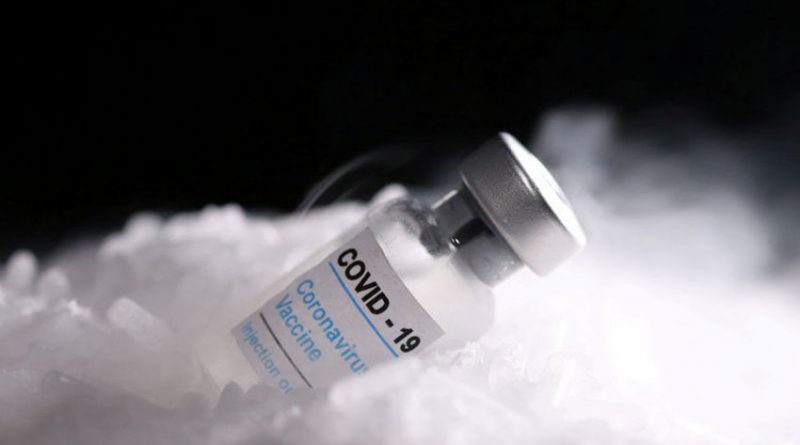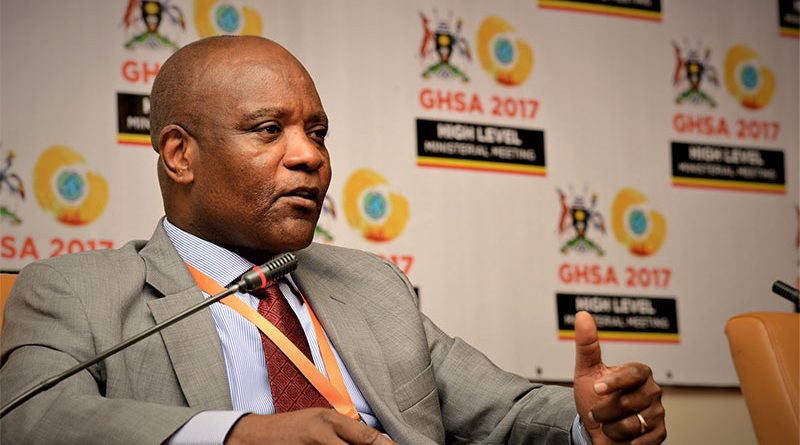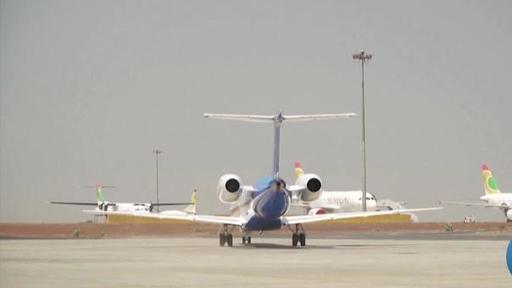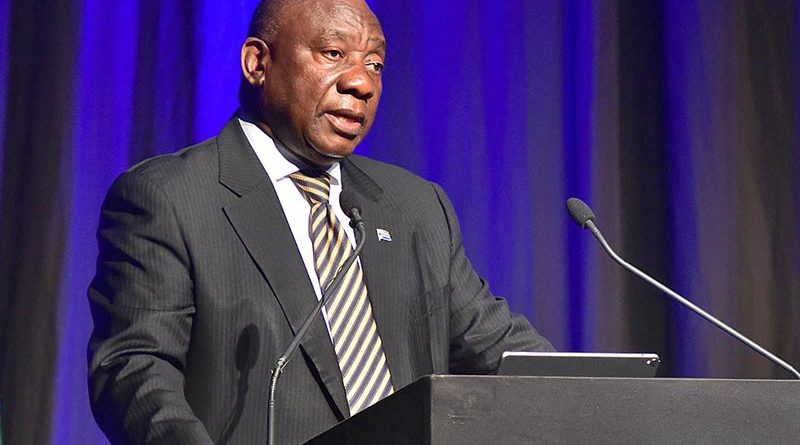SOMALIA’S first public oxygen plant has opened, in a ray of hope for a country where a lifesaving treatment for the coronavirus has been largely unavailable to patients during the pandemic.
Global demand for medical oxygen has surged with the COVID-19 pandemic, and many countries have experienced desperate shortages.
This and a lack of other equipment mean Africans seriously ill from COVID-19 are more likely to die than patients elsewhere, according to a study published in May by medical journal The Lancet, which cited data from 64 hospitals in 10 countries.
The new plant in Mogadishu was purchased for 282,000 euros ($240,700) from Turkey by the Hormuud Salaam Foundation, established by the country’s largest telecoms company, Hormuud.
It will be installed at the Banadir Maternity and Children Hospital, where the foundation has also funded the repair of its COVID-19 ward.
The wing and the hospital’s outer wall were partially destroyed during a nearby attack in July by Islamist al-Shabaab militants, who are fighting to overthrow the government.
Medical oxygen production needs experts to operate and maintain equipment. It also requires reliable electricity and water supplies, which most Somali public hospitals do not have.
Other countries, such as India, suffered severe oxygen shortages during surges in COVID-19 infections, forcing desperate families of patients to pay exorbitant prices for cylinders.
“One cylinder of oxygen usually costs around $50 in Somalia but can reach up to $400 or $500 (at private hospitals) because of the shortage,” said Abdullahi Nur Osman, CEO of Hormuud’s foundation.
He said the oxygen will be distributed among the public hospitals in the capital Mogadishu free of charge.
As of Wednesday, Somalia had reported nearly 20,000 COVID-19 cases and 1,100 deaths, according to the World Health Organization, but figures could be far higher due to inadequate testing and unreported deaths.
Only 1% of Somalia’s 15 million citizens are fully vaccinated, reflecting inequities in vaccine distribution that the World Health Organization warns will prolong the pandemic, which has already claimed nearly 5 million lives.
THE African Union’s (AU) top health official called Britain’s lack of recognition for coronavirus vaccines administered in Africa regrettable, saying it sends a confusing public health message.
England announced last week that it would expand the list of countries from which it recognises vaccines, adding 17 others beyond the initial list of the United States and Europe. None of those countries are in Africa. The British government sets coronavirus policy for England, while Scotland, Wales and Northern Ireland are in charge of their own rules.
“We regret that the UK would take this position. We are calling on them to review this because it doesn’t speak to the spirit of true solidarity and cooperation,” said Africa Centres for Disease Control and Prevention director John Nkengasong.
“If … you send us vaccines and we use those vaccines and you say you don’t recognise people that have been immunised with those vaccines… it sends a very challenging message for us,” he said.
The British High Commission in Kenya said in a joint statement with the Kenyan Health Ministry on Tuesday that it takes time to set up a system to recognise vaccine certificates for international travel.
Richard Mihigo, a World Health Organization official, echoed this, saying the issue is fundamentally about certificates.
“We need to see how some of these certificates that are generated could be mutually recognised by different countries,” Mihigo, coordinator for the WHO’s Immunization and Vaccines Development Programme Africa, told a news conference on Thursday.
However, Africa’s vaccination rate is still very low. Just 4% of Africans have been vaccinated and much of the continent remains in the midst of a third wave, Nkengasong said
Monthly vaccine shipments to the continent would have to jump seven-fold to reach a United Nations goal of 70% immunisation of the population by September 2022, WHO Africa said in a separate statement.
THE United States in November will re-open air travellers from China, India, Britain and many other European countries who are fully vaccinated against COVID-19, the White House has announced, rolling back tough pandemic-related travel restrictions imposed beginning early last year.
The decision, announced by White House coronavirus response coordinator Jeff Zients, marked an abrupt about-face for President Joe Biden’s administration, which last week said it was not the right time to lift any restrictions. The restrictions had prevented tens of thousands of foreign nationals from flying to the United States to see family members and slashed business travel.
The curbs on non-U.S. citizens were first imposed on air travellers from China in January 2020 by then-President Donald Trump and then extended to other countries in the following months, without any clear metrics for how and when to lift them.
The United States will admit fully vaccinated air travellers from the 26 so-called Schengen countries in Europe including France, Germany, Italy, Spain, Switzerland and Greece, as well as Britain, Ireland, China, India, South Africa, Iran and Brazil. The existing policy had barred non-U.S. citizens who had been in those countries within 14 days.
Zients did not give a precise start date beyond saying “early November.”
The new policy was announced ahead of the United States hosting leaders from Britain, India, Japan and Australia at the White House this week, and Biden making his first speech at the U.N. General Assembly on Tuesday.
British Prime Minister Boris Johnson called the announcement “a fantastic boost for business and trade, and great that family and friends on both sides of the pond can be reunited once again.”
Americans travelling from abroad who are not vaccinated will need to show proof of a negative COVID-19 test within a day of travel and will need to show proof of purchasing a viral test to be taken after arrival in the United States.
Countries during the pandemic have imposed numerous air travel restrictions and bans in a bid to slow the spread of COVID-19. The policies devastated international travel and tourism and shook the airline industry, which carried out a series of service cutbacks and employee furloughs.
Airlines for America, an industry trade group, said that through late August, international air travel was down 43% from pre-pandemic levels.
British Airways CEO and Chairman Sean Doyle said the news “marks a historic moment and one which will provide a huge boost to Global Britain as it emerges from this pandemic.”
Shares in British Airways parent IAG were up 11%.
Germany’s U.S. ambassador, Emily Haber, welcomed the “Great news” on Twitter, adding, “Hugely important to promote people-to-people contacts and transatlantic business.”
WHICH VACCINES?
The White House said the U.S. Centers for Disease Control and Prevention (CDC) will decide which vaccines qualify, including if those not approved by U.S. regulators will be acceptable. Foreign nationals will need to present proof of vaccination before travel and will not be required to quarantine upon arrival.
There will be some exceptions to the vaccine policy, officials said, including for children not yet eligible to be vaccinated. The new rules do not yet apply to travellers crossing land borders with Mexico and Canada.
Some Europeans and others on the restricted country list have been allowed to travel to the United States including students, journalists and others getting permission from the State Department.
Zients said the United States is again extending restrictions that bar non-essential travel through October 21.
Critics have said travel restrictions no longer make sense because some countries with high COVID-19 rates are not on the restricted list while some countries on the list have the pandemic under control.
The U.S. Travel Association trade group previously estimated that the restrictions, if they ran to the end of the year, would cost the U.S. economy $325 billion in total losses and 1.1 million jobs.
Airlines heavily lobbied the White House to lift the restrictions but failed to get them lifted in time for the summer travel season. The White House said in July it had concerns about the highly infectious coronavirus Delta variant and a rising number of U.S. COVID-19 cases.
Zients said on Sept. 15 that given the rise of the Delta variant, it was not the right time to lift any travel restrictions. Asked on Monday what changed since then, Zients cited rising global vaccinations, adding: “The new system allows us to implement strict protocols to prevent the spread of COVID-19.”
Zients said the new system will include collecting contact tracing data from passengers travelling into the United States to enable the CDC to contact travellers exposed to COVID-19.
Since the outset of the COVID-19 pandemic, China and the United States have sparred over air services. In addition, Biden in April added new travel restrictions on India. Biden also reversed plans by Trump in January to lift restrictions on European countries.
(CNN)South Africa will start to ease several Covid-19 restrictions as infection rates decrease in the country, President Cyril Ramaphosa announced on Sunday.





